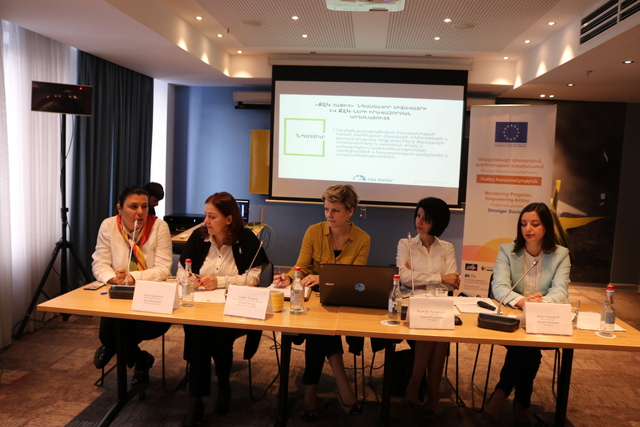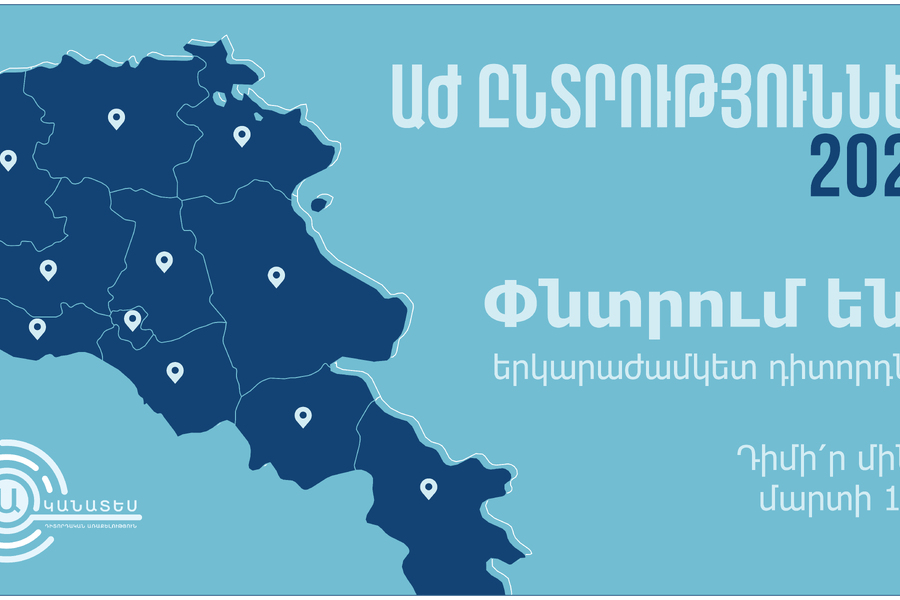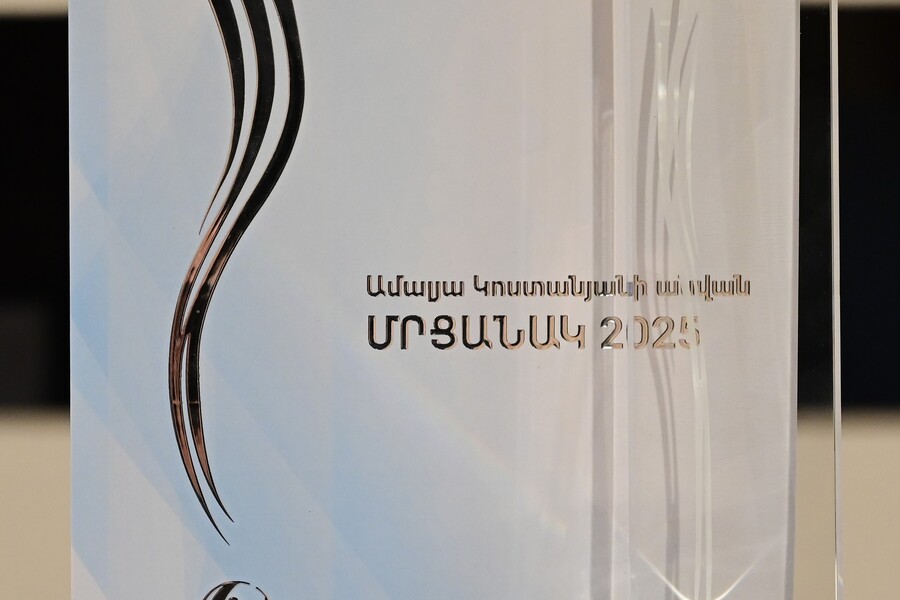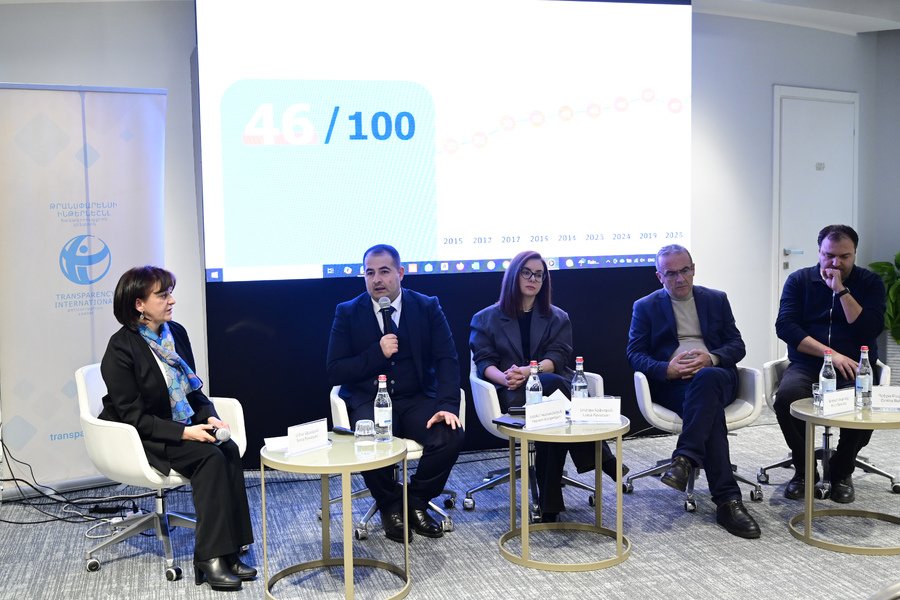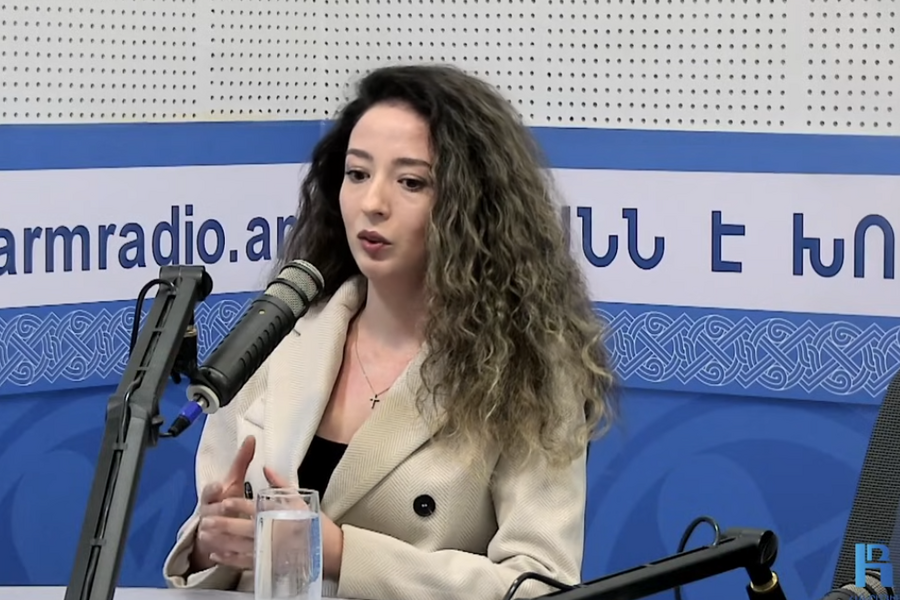Presentation of CSO Meter Armenia 2022 Results
On April 19, the Transparency International Anticorruption Center organized the public presentation of the CSO Meter 2022 Armenia report. The opening remarks were given by Sona Ayvazyan, the executive director of TIAC, Tatevik Davtyan, the representative of the European Union Delegation to Armenia, and Eszter Hartay, the representative of the European Center for Not-for-Profit Law Stichting (ECNL)

Sona Ayvazyan explained the methodology of the CSO Meter and highlighted its usefulness in enabling comparisons between countries and the identification of trends over time. The results of the research can serve as a tool for civil society organizations (CSOs) to advocate for a more favorable environment, and other organizations can also join these efforts.
Tatevik Davtyan emphasized the importance of the CSO Meter in enabling the recording of changes in the environment for civil society. She noted that capacity building of CSOs is a central theme of the EU's current programs, and the findings of the report can help the EU to address problems more effectively.
Eszter Hartay noted that the past year has brought many challenges to the region, affecting the activities of CSOs, who have had to revise their work. Nevertheless, positive trends have been observed, such as in the fields of cooperation with the state and financial stability. A regional report on the CSO Meter is currently being developed, which will present key regional developments in the context of the CSO environment.
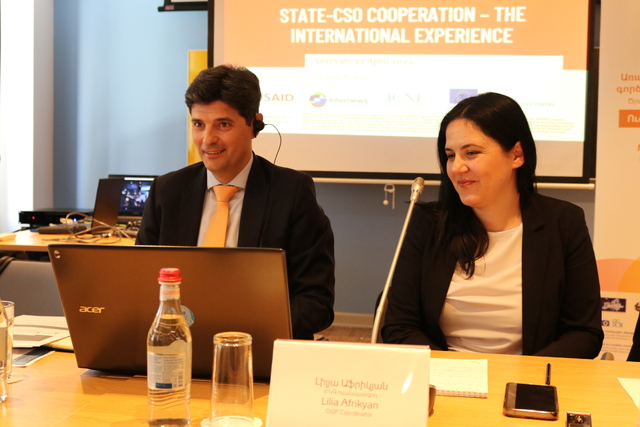
Anush Hakobyan and Tatevik Margaryan of TIAC presented the main findings of the 2022 CSO Meter. The research was conducted with a special methodology based on international standards and best practices. The survey revealed both positive and negative developments in the areas of participation in the decision-making process, freedom of speech, freedom of assembly, protection by the state, right to privacy, and digital rights. The lack of proper protection against hate speech, pressure, and attacks against CSOs led to a decrease in the assessment of the state's duty to protect. Gaps in state-CSO cooperation, unequal treatment of CSOs and business companies in matters of registration and taxation, lack of effectiveness of CSO participation in decision-making, and lack of incentives to develop financial stability of CSOs remain problems.
The event also discussed ways to improve cooperation between the CSO and the state. Lilya Afrikyan, coordinator of the Open Government Partnership of the RA Prime Minister's Office, and Luben Panov, a representative of the European Center for Not-for-Profit Law Stichting (ECNL) presented their perspectives on the tools and mechanisms of cooperation, as well as the existing challenges and proposals for possible mechanisms of cooperation in Armenia.
You can learn more about the report presentation in the video.
The event was organised within the framework of the Action “CSO Meter: A Compass to Conducive Environment and CSO Empowerment“, implemented with the financial support of the European Union.
The Project is implemented by the European Center for Not-for-Profit Law Stichting (ECNL) and its partners: Transparency International Anticorruption Center in Armenia; MG Consulting LLC in Azerbaijan; Civil Society Institute in Georgia; Promo-LEX Association in Moldova; and the Ukrainian Center for Independent Political Research (UCIPR).


